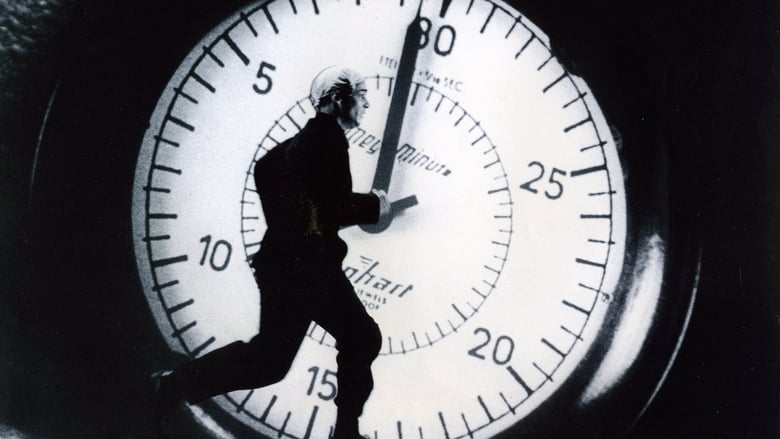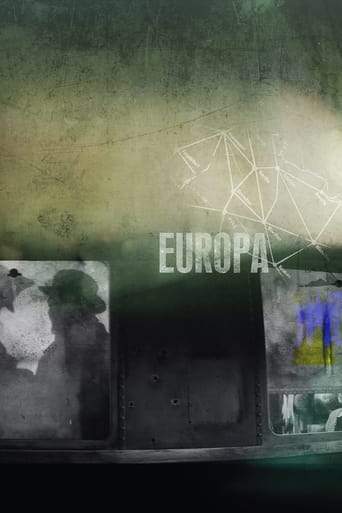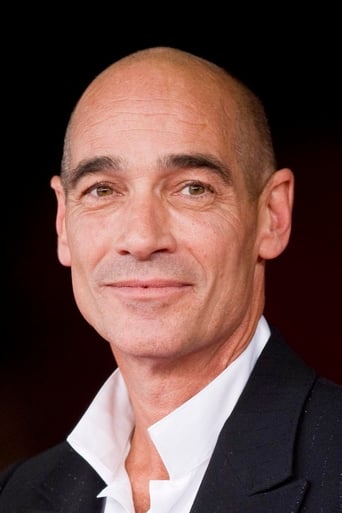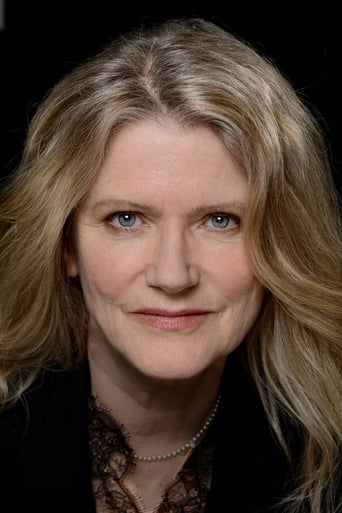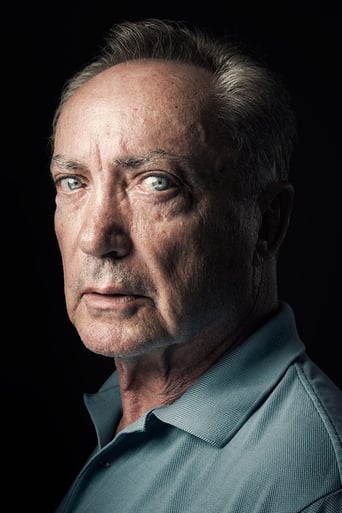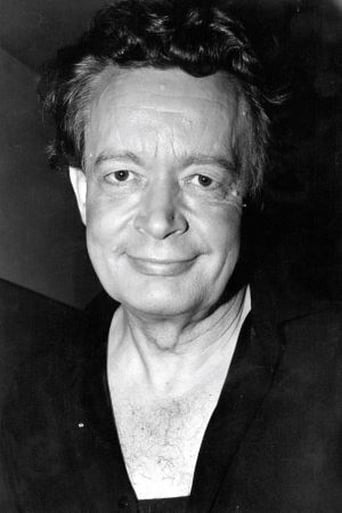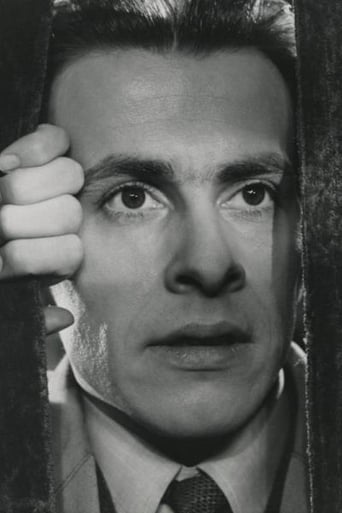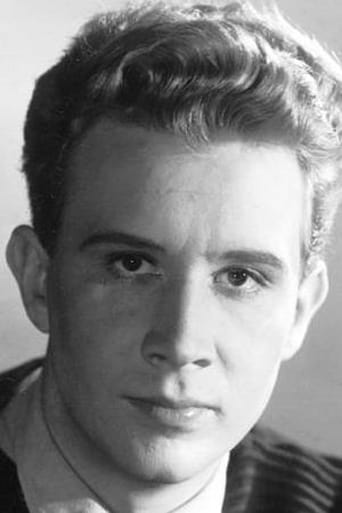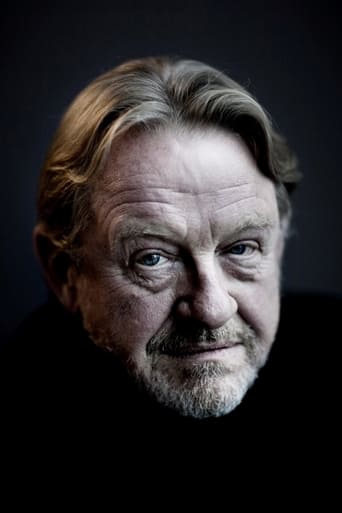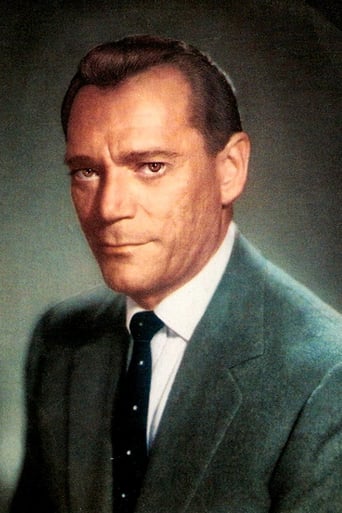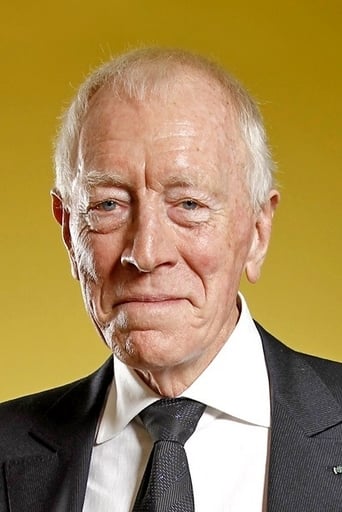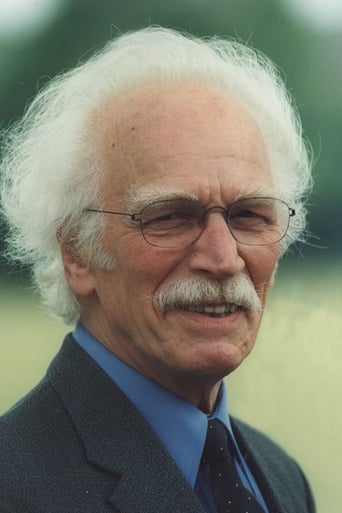A young, idealist American gets a job as a train conductor for the Zentropa railway network in postwar, US-occupied Frankfurt. As various people try to take advantage of him, he soon finds his position politically sensitive, and gets caught up in a whirlpool of conspiracies and Nazi sympathisers.
Similar titles
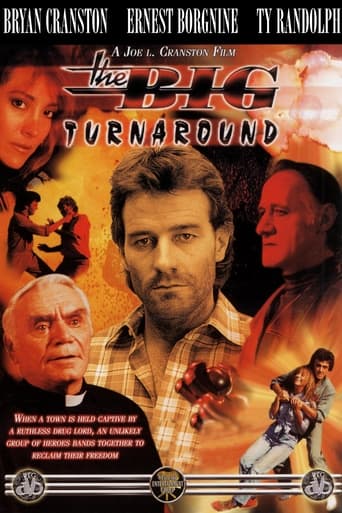


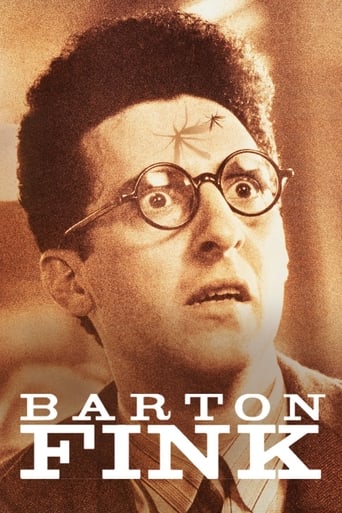
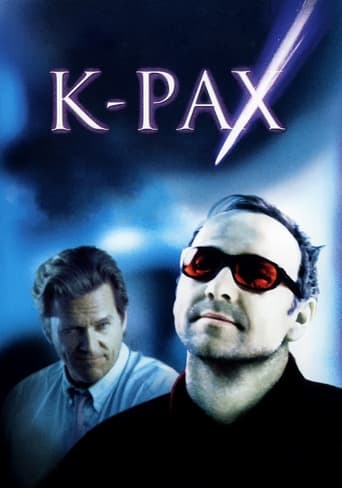

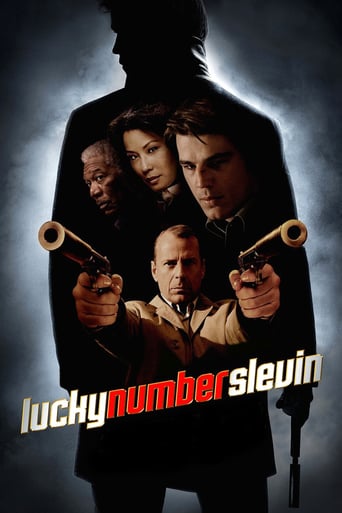
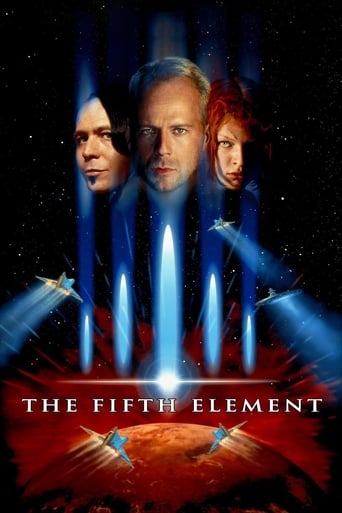
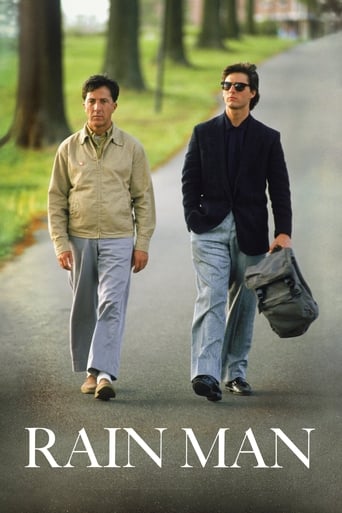
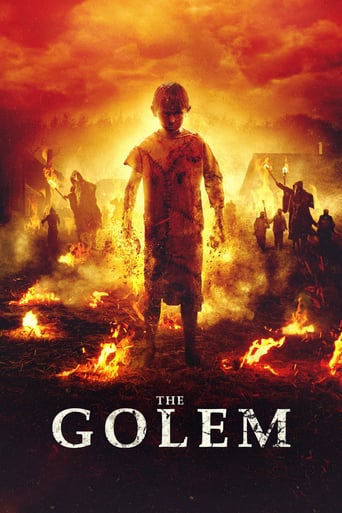
You May Also Like
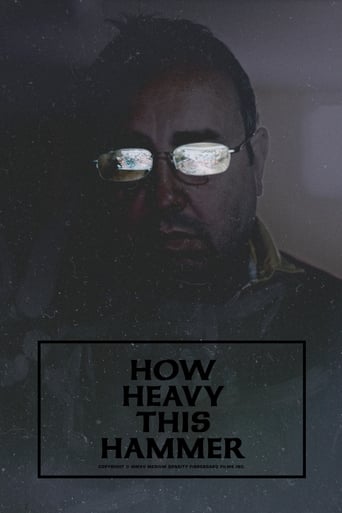
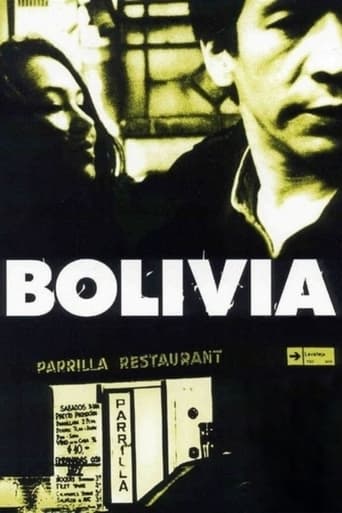
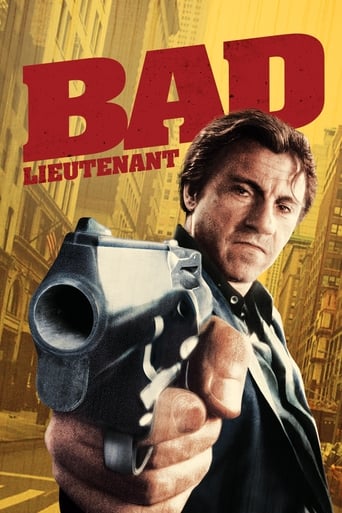
Reviews
Did you people see the same film I saw?
Better Late Then Never
It's a mild crowd pleaser for people who are exhausted by blockbusters.
The thing I enjoyed most about the film is the fact that it doesn't shy away from being a super-sized-cliche;
Man oh man... I've been foolishly procrastinating (not the right term, there's a long list!) to watch this film and finally had the chance to do so. And "news" are: Marvellous labyrinthine spectacle!For any Von Trier's "follower": both Rigets, Element of Crime, Dogville, Dancer in The Dark, The Five Obstructions, etc... Europa is probably the differential for its greatness in visual terms. Everything is beautifully somber and claustrophobic! You really get the feeling of being inside this "imaginary" nightmarish time warp. Taking from the masters of surreal cinema like Bunuel, Bergman, till noir films of the 40's with acidic drops of avant-guard Von Trier leads the art-film scene as the "well intended totalitarian" movie maker of nowadays. His authoritarian way of dealing with very intricate issues, without being irrational, hits the nerve of the viewer with the intent to cure some of the deepest wounds we feed in our hypocritical world.As Utopian as it seems, I do believe people like Von Trier could help society in many ways in a broader aspect. The day films and filmmakers that carry this sort of power are no longer necessary, as a tool for reflection, perhaps it could be the start of a new era: "The age of emotional control over our fears". This is what he offers to us constantly through his work over and over.Bravo!
Concluding the trilogy of films that began almost a decade earlier with the dark, industrial influenced film-noir experiment The Element of Crime (1984) and continuing with the largely unseen experimental horror-satire Epidemic (1987), this multi-layered, visually expressive post-war thriller finds precocious auteur Lars von Trier in his cinematic element; creating a mind bending and deeply hallucinogenic film-noir appropriation that references sources as diverse as Hitchcock, Bergman, Welles and Murnau, to create a myriad of expressionistic images, philosophies and moments of heart-stopping tension.As with his later, more widely seen work, such as Breaking the Waves (1996) and The Idiots (1998), von Trier structures the film with a complete disregard for mainstream movie conventions - not just throwing out the cinematic rule book, but proudly stampeding it - as he strings together scene after scene of ethereal beauty; all backed by the haunting and distinctive narration of Max Von Sydow and the thrilling music of Joakim Holbek. The result is a film like no other; revelling in pretension and cinematic excess; Europa (1991) knows exactly what it is and raises a middle finger to anyone who refuses to buy into its central ideology. In keeping with the director's earlier works, the plot of Europa is threadbare, but never less than interesting; as Jean Marc Barr's bookish American goes back to Germany in the wake of World War II to discover his roots and lend a hand in the rebuilding of the country. Barr's character, Leopold Kessler, is a brazenly idealistic young man, peering out from behind his spectacles with wide eyes as he bravely suffers ridicule and contempt from all around him. Amongst this central narrative device we have the usual film-noir conventions of shadowy businessmen, the femme-fatale, etc. However, the film always comes back to von Trier's central ideology. If we have learned anything from the director's work, it is the ultimate image of the idealist being brought slowly to their knees and eventually destroyed. In both Breaking the Waves and Dancer in the Dark (2000), von Trier concludes that those who live in false hope will sooner or later be smashed by a manipulative and unloving system.His most successful realisation of this was with the aforementioned Dancer in the Dark, in which he mixed elements of melodrama and musical theatre with social-realist concerns to create a somewhat misguided indictment of the American judicial system within the context of a 1950's cinematic universe. His most controversial film, Breaking the Waves, again saw the destruction of a central martyr, with the childlike Emily Watson sacrificing her body to Christ - and various lecherous old men - in order to cure her crippled husband. With Europa, von Trier would lay the groundwork for these following films, whilst once again condemning the American's shallow, self-riotous image and animosity in the face of war (though perhaps more multi-faceted than that one-line assessment might suggest). The director also throws in ideas of fascism, terrorism and a hearty helping of post-modern references, though all in the name of cinematic experimentation, high style and unashamed visual manipulation.Shot in a sort of off black and white - meaning that the images have been given a silvery blue tint, with deeply rich shadows - and framed in anamorphic cinemascope, Europa twists and turns with one jaw-dropping set piece after another. A simple assassination sequence is drawn out using forced perspectives, colour juxtaposition and rear screen projection to dizzying effect, and the way that the camera cranes and tracks, constantly offering us layer upon layer of visual symbolism is truly amazing. The iconography is bold, yet slightly clear-cut in comparison to the courageous departures that von Trier made with his earlier film The Element of Crime. Here we have he an expressionistic vision of Europe in severe decline, with Germany attempting to claw themselves out of the ashes and regain power as an important society (leading up to the eventual economic miracle of the early 1950's). Some have criticized Barr's character for not being heroic enough, missing the point of the film entirely. Kessler isn't supposed to be the hero, but rather a patsy or a puppet. He's an American going back to a country that his own military helped destroy, representing arrogant idealism; pointing out Germany's own weaknesses and posturing to gain acceptance. This is a much bleaker film once we start dealing with the issues of sub-text, as the scene that prefigures a prominent funeral will attest. For me, this is a stirring and imaginative film dealing with themes such as deception, manipulation and eventually, corruption.With Europa, von Trier has structured a beautifully designed and thematically quite gripping thriller with both political and cinematic reference points in abundance. Most filmmakers would be terrified to put the viewer to sleep within the first five minutes, but Europa takes up that challenge, using Von Sydow's haunting voice to lull the viewer into a state of assumed hypnosis. Needless to say the film employs ideas of dream-logic, unfolding subjectively and expressionistically from the central character's point of view. The is a film that will linger long in the mind of anyone who experiences it, as the closing moments leave the audience adrift at sea, or as lost as Leopold Kessler. As Von Sydow observes in the film's closing narration; "we want to wake up, to leave behind the images of Europa... but it is not possible".
Lars Von Trier is never backward in trying out new techniques. Some of them are very original while others are best forgotten.He depicts postwar Germany as a nightmarish train journey. With so many cities lying in ruins, Leo Kessler a young American of German descent feels obliged to help in their restoration. It is not a simple task as he quickly finds out.His uncle finds him a job as a night conductor on the Zentropa Railway Line. His job is to attend to the needs of the passengers. When the shoes are polished a chalk mark is made on the soles. A terrible argument ensues when a passenger's shoes are not chalked despite the fact they have been polished. There are many allusions to the German fanaticism of adherence to such stupid details.The railway journey is like an allegory representing man's procession through life with all its trials and tribulations. In one sequence Leo dashes through the back carriages to discover them filled with half-starved bodies appearing to have just escaped from Auschwitz . These images, horrible as they are, are fleeting as in a dream, each with its own terrible impact yet unconnected.At a station called Urmitz Leo jumps from the train with a parceled bomb. In view of many by-standers he connects the bomb to the underside of a carriage. He returns to his cabin and makes a connection to a time clock. Later he jumps from the train (at high speed) and lies in the cool grass on a river bank. Looking at the stars above he decides that his job is to build and not destroy. Subsequently as he sees the train approaching a giant bridge he runs at breakneck speed to board the train and stop the clock. If you care to analyse the situation it is a completely impossible task. Quite ridiculous in fact. It could only happen in a dream.It's strange how one remembers little details such as a row of cups hanging on hooks and rattling away with the swaying of the train.Despite the fact that this film is widely acclaimed, I prefer Lars Von Trier's later films (Breaking the Waves and The Idiots). The bomb scene described above really put me off. Perhaps I'm a realist.
Storyline: Max von Sydow's voice-over narration hypnotizes the protagonist (and audience) back to 1945 where our protagonist the young American ideologist Leopold Kessler (Jean-Marc Barr) has just arrived in post-WWII 1945 Germany to help rebuilding the damaged country. Uncle Kessler (Ernst-Hugo Järegård) supplies Leopold with a job in the big Zentropa train corporation, but soon Leopold falls in love with Katharina Hartmann (Barbara Sukowa); daughter of Zentropa owner Max Hartmann (Jørgen Reenberg). Leopold soon finds himself caught in a web of corruption, being taken advantage of, losing his ideology, and is forced to chose between pest or colera.Mysterious, mesmerizing, manipulative, noirish, haunting, beautiful, and ugly. These are some immediate, grandiose, descriptions that come to mind when thinking of Lars von Trier's 1991 masterpiece EUROPA; the final chapter of the Europa trilogy. In USA it was retitled ZENTROPA so audiences wouldn't confuse it with Agnieszka Holland's EUROPA EUROPA from 1990 (equally a WWII drama). The Europa trilogy also consists of FORBRYDELSENS ELEMENT from 1984 and EPIDEMIC from 1987 (the infamous experiment that only sold 900 tickets in the Danish cinemas). The trilogy thematically deals with hypnotism and loss of idealism, although the themes of this trilogy are not as essential as the visuals. In the opening-shot of EUROPA we see a locomotive moving towards us while our unidentified narrator literally hypnotizes us: "On the mental count of ten, you will be in Europa. Be there at ten. I say: ten". A metaphor for movies' ability to transport us into a subconscious dream-reality.EUROPA utilizes a strange but extremely effective visual style -- that famous Russian director Andrei Tarkovsky is Trier's main-influence says it all. It's a black-and-white movie occasionally intertwined with red in form of blood, a red dress etc. According to rumors this inspired Steven Spielberg to use the similar effect in SHINDLER'S LIST from 1993 (coincidentially another WWII drama). Furthermore Trier uses so-called Dutch angels and reinvents background-projection by adding separately shot co-operating layers upon layers, but unlike old Hollywood movies that incorporated it for economical reasons, Trier uses it for artistic reasons. These carefully executed strange-looking visual techniques underline that we are in a dream-reality, we are hypnotized; the universe of EUROPA is not real! EUROPA is often criticized for weighing advanced technique (such as multi-layered background-projection) above plot and characters, but hey that's what reviewers criticized Stanley Kubrick's 1968 visual masterpiece 2001: A SPACE ODYSSEY for -- nowadays it holds an obligatory place in all cinema-history books.EUROPA also gets accused of historical incorrectness. Apparently Trier assigns the Nazis' Werewolf terrorist-group too much historical significance. According to various online-sources that's correct (a fascinating subject - try Googl'ing it yourself!), yet Trier's purposes are neither educational nor portraying history accurately. EUROPA is a never-ending nightmare. Leopold Kessler is hypnotized, therefore the universe that the audience encounters is a distorted reality. Equally it shows how our memory deceives us -- a 100% accurate reconstruction is a lie! Although young audiences who experience EUROPA are too young to have memories from WWII, we have a collective memory of it from various BBC documentaries, so these small inaccuracies actually serve a purpose: they inform us us that we are not in post-WWII Germany 1945, but in Leopolds memory of it.All three Europa trilogy chapters portray young ideologists with noble intentions forced into corruption and losing their ideological innocence. The ambiguous endings of FORBRYDELSENS ELEMENT and EUROPA show the ideologists getting forever caught in their hypnotized realities. Before, during and after shooting EUROPA in 1990 in Poland, Lars von Trier and co-writer Niels Vørsel were extremely interested in WWII. It shows. It's packed with extremely beautiful shots catching the atmosphere of the time-period spot-on. A great example is the old Polish church (EUROPA was shot in Poland primarily for economic reasons) in the last act of EUROPA. As with 2001: SPACE ODYSSEY I think EUROPA will receive it's rightfully deserved place in cinema-history. Its method of twisting old film-noir love-affair clichés and visual techniques is so unique, strange and completely different from anything you will see from Hollywood nowadays, or any other dream-factory for that matter.EUROPA is an essential movie in the Lars von Trier catalog. Some write it off as pure commercial speculation, but that would be catastrophic. It's right up there with other Trier classics and semi-classics such as FORBRYDELSENS ELEMENT from 1984, the TV-series RIGET from 1993 and DOGVILLE from 2003. It's a unique experience from before Trier cared for his actors, and before the Dogme95 Manifesto. Watch it! "On the count of ten..." 9/10
Top Streaming Movies











